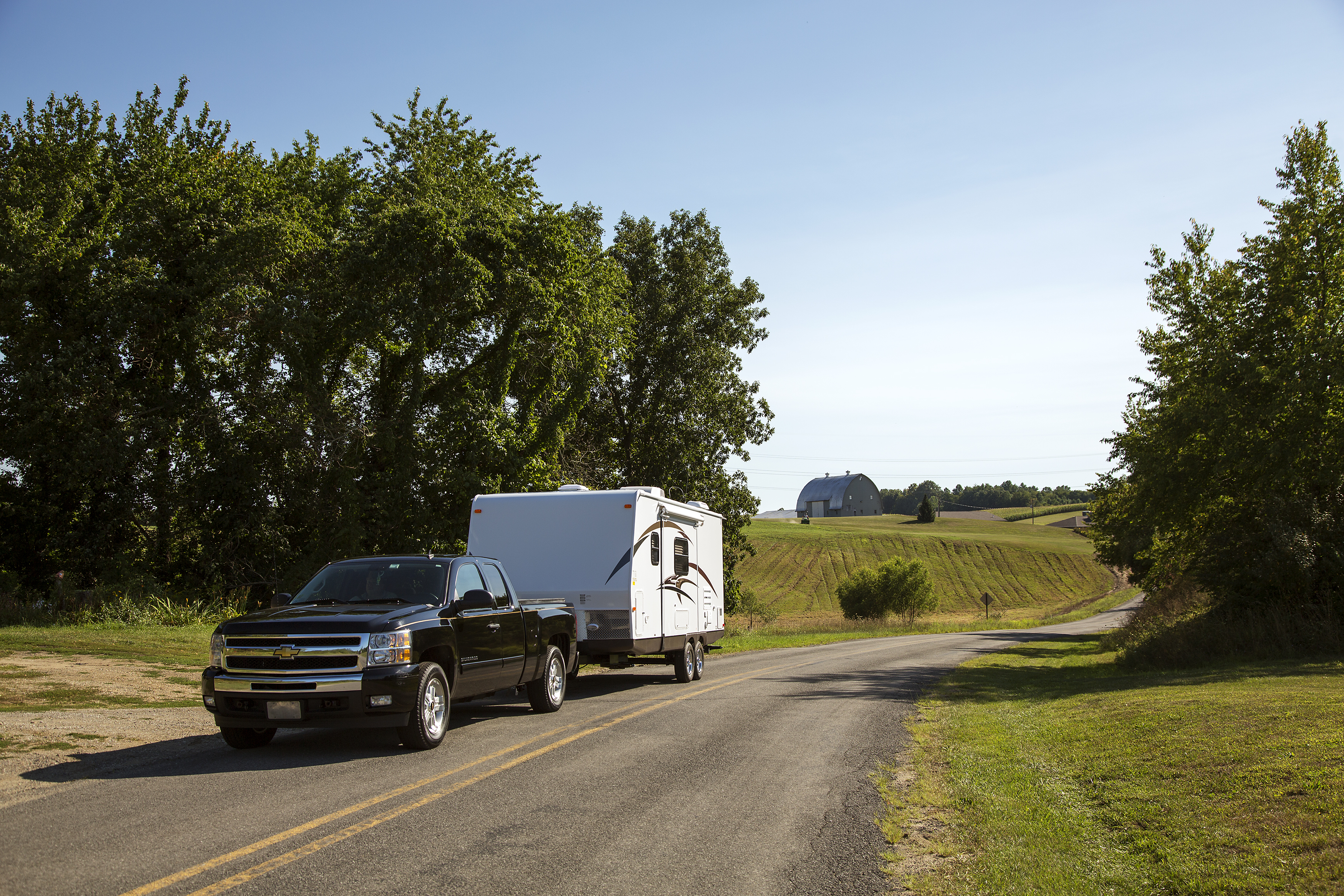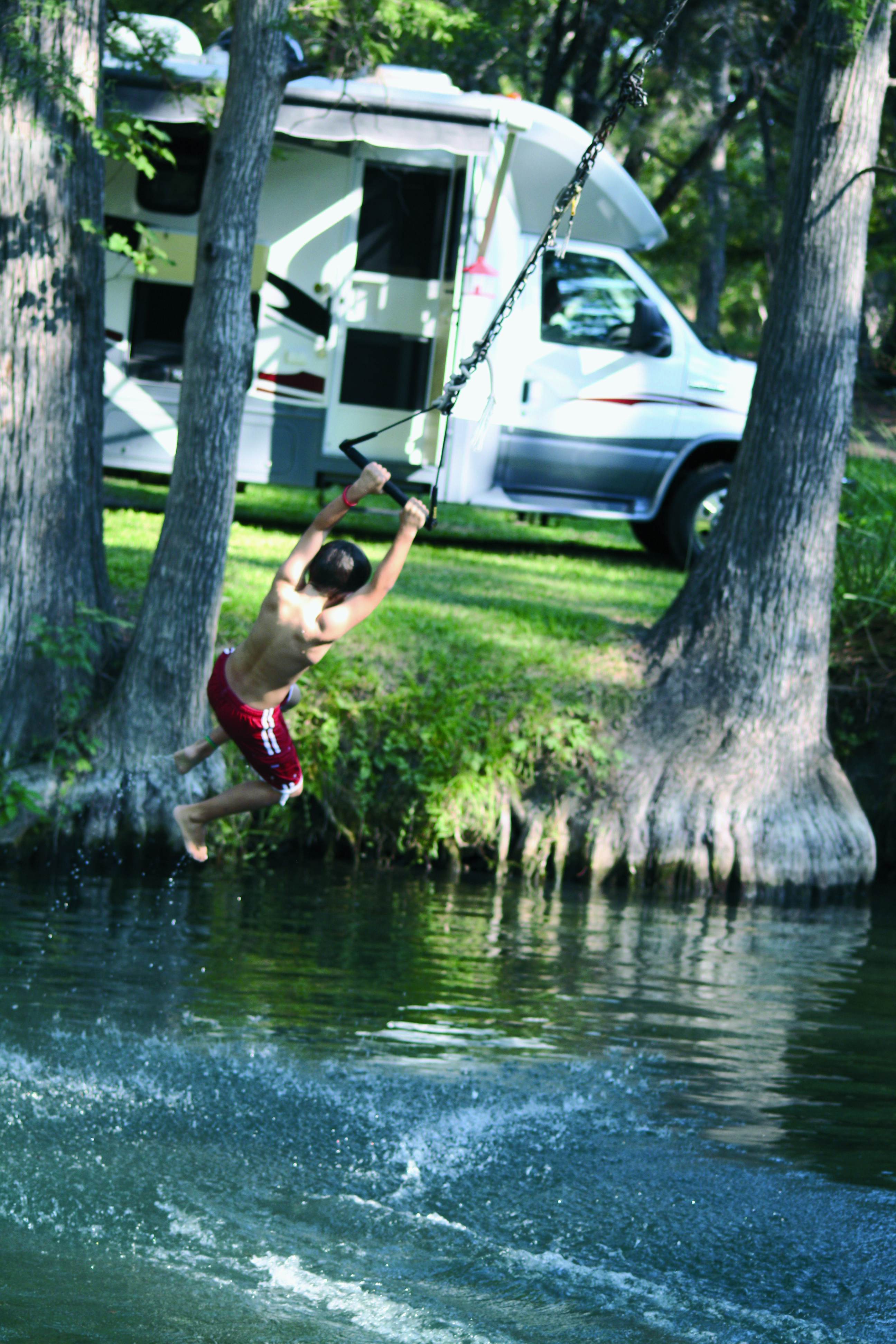Lakeshore RV Center

Leveling Jacks, Tank Treatments, Brake Controllers, Oh My!
Do you need training to go RVing? The world of camping can be a TAD overwhelming if you’ve never stepped into it before. It’s like being a first-time homeowner all over again with fears of a leaky roof, running toilets, or a raccoon nest in your chimney! But the whole idea behind RVing is experiencing the freedom and adventure that lies just over the next hill, not worrying about how to use and maintain your new RV. To help ease your mind and restore that adventurous and carefree spirit back into your soul that made you want to go RVing in the first place, let’s talk about being a new RVer!
next "Meet your New RV"
 Meet your New RV
Meet your New RVWhether you buy a brand spanking new or a used RV at Lakeshore RV, you will be taken on a complete walk-through of your new RV by our staff. This walk-through includes a walk-around as well. You’ll be told the specifics about maintaining the fluid levels of your RV, such as brake fluid, engine oil, and windshield wiper fluid (if your new ride is a motorhome). You’ll also be shown how to open and close your awning, raise and lower your stabilizing jacks, access your Docking Station, hitch up your RV to your tow vehicle, and so much more! Inside your RV you’ll learn how to flip open the bunk beds, read the holding tank indicators, use your kitchen appliances, and more. It won’t take long to familiarize yourself with your new home-away-from-home and you’ll be itching to hitch it up and go!
next "Water Holding Tanks: A Necessary Evil"
 Water Holding Tanks: A Necessary Evil
Water Holding Tanks: A Necessary EvilYour RV most likely has three water holding tanks. Each one has a very specific purpose and a very different rating on the “Ick!” scale. The fresh water holding tank holds your clean drinking water and registers as a 0 on the “Ick!” scale. Don’t hit the road with a 100-gallon tank filled to the brim with clean water, though. Weighing in at 8 lbs. per gallon, that water just became very expensive to haul from Point A to Point B. Fill your tank when you arrive at your campground. Some campgrounds even have water hookups on each site so you won't need to ever fill the fresh water tank. The gray tank collects water from your kitchen and bathroom sinks and the shower. This tank also registers low on the “Ick!” scale at maybe a 3 or 4. Still tolerable, right? The black water tank is where it all goes downhill. With an off-the-charts “Ick!” rating, the black tank holds waste from the toilet and has to be treated very carefully when emptying and flushing. RVers learn very quickly the importance of not cutting corners here. Having the right hoses, clamps, rubber gloves, and holding tank chemicals will make your life a lot easier (and cleaner!) when it comes to this dirty job!
next "Packing"
 Packing
PackingThere are lots of bumps and turns in the road of life. Really, there are! And you don’t want your camping equipment flying all over the inside of your RV. Be smart about how and what you pack, knowing that anything that is not tied down or secured could very quickly become a projectile object. Pack only what you think you need. Do you need 12 pairs of shoes? Probably not. Can you survive without your smoothie maker or waffle iron for a week? Probably! Camping essentials include clothes (obviously!), indoor and outdoor cooking equipment, bath towels, toiletries, laundry detergent, a tool kit for unplanned repairs or issues, a first aid kit, and more. Look on our blog for Camping Checklists to get you started.
No matter where you go or what you take along with you, remember that camping is all about finding new roads and creating lifelong memories. Was Mt. Rushmore built in a day? No! Will you know everything about your new RV right away? Probably not. And that’s ok! Just roll with it!












